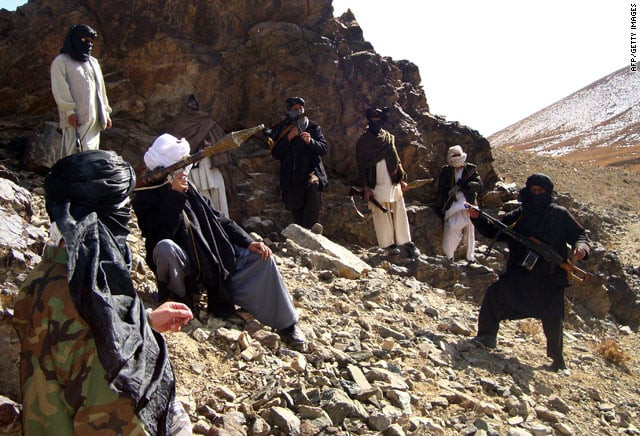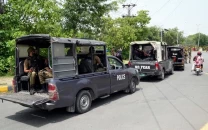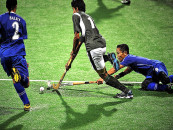Who are the Pakistani Taliban?
The militants have shown time and again that they can inflict heavy casualties wherever they want.

The Tehrik-e-Taliban Pakistan (TTP), which is allied with al Qaeda, said the attack was to avenge the al Qaeda leader's killing on May 2. Bin Laden was shot dead by US special forces in a secret operation that Pakistan says breached its sovereignty.
A militant spokesman said the assault proved the group was still "united and powerful". Following are some questions and answers about the Pakistani Taliban, their motives and capabilities.
Who are the Pakistani Taliban?
The militants are mostly ethnic Pashtuns from the semi-autonomous tribal belt along the Afghan border where Pakistan and the United States poured in weapons in the 1980s to support militants, including Bin Laden, battling Soviet forces in Afghanistan.
There are different Taliban factions in places such as North and South Waziristan, Bajaur and Mohmand, united under the Pakistani Taliban banner. They have links with the Afghan Taliban, most of whom are fellow Pashtuns although the Afghan militants do not attack in Pakistan. The Pakistani Taliban have strong links with al Qaeda and militant factions from other parts of Pakistan, in particular Punjab province.
Pakistani Taliban have been providing training and other support to outside militants, including Westerners, in their strongholds.
What are they fighting for?
They are vehemently opposed to Pakistan's alliance with the United States in the campaign against militancy launched after the Sept 11, 2001, attacks. As Pakistan, under US pressure, stepped up operations against militants on the Afghan border, Pakistani Taliban attacks on the security forces picked up. They launched their war against Pakistan in earnest after security forces cleared gunmen from Lal Masjid Islamabad, in July 2007 with the loss of about 100 lives.
What are their methods?
The militants have killed hundreds of pro-government Pashtun tribal leaders in the border lands, decimating traditional power networks through which the central government exerted control, and imposing their vision of Islamic rule.
While taking control of much of the tribal belt, the militants have repeatedly attacked the security forces in northwestern towns and cities with suicide bombers and ambushes. They have tried to expand their zones of influence and took control of the scenic Swat valley, northwest of Islamabad, before the military launched an offensive in 2009 to push them out.
What are their capabilities?
The militants have shown time and again that they can inflict heavy casualties wherever they want and they have the capability to launch sophisticated assaults on prime targets at the heart of the security establishment.
Prior to Monday's attack on the naval force headquarters, they attacked the army's headquarters in the city of Rawalpindi and a nearby mosque where many officers were praying. They have blown up buses carrying staff of the main Inter-Services Intelligence agency to work in Rawalpindi and set off car bombs outside several offices of the ISI and other security agencies in various cities including Lahore.
They have attacked military and police training facilities, with suicide bombers and gunmen, in several places in the northwest. They have attacked numerous military camps and the country's main defence industry complex. They have set off bombs in mosques where their rivals were praying and numerous gatherings of rival tribal elders.
They have attacked diplomatic missions, offices of the United Nations and aid groups, a visiting Sri Lankan cricket team and the shrines of moderate Sufis and members of rival sects.
The Pakistani Taliban have claimed responsibility for the assassination of numerous army officers over recent years and a Christian government minister this year. They were accused of killing former prime minister Benazir Bhutto in 2007, but they denied it.
What is their reach?
While their activities have been almost entirely confined to Pakistan, they have shown an interest in expanding their range under the banner of al Qaeda.
A suicide bombing at a US base in Afghanistan's Khost province in 2009, carried out by a Jordanian national, killed seven Central Intelligence Agency employees.
In video footage released after the attack, the bomber was shown sitting with Pakistani Taliban leader Hakimullah Mehsud, a stark illustration of growing links between the Pakistani insurgents and foreign militants.
A Pakistani-born American who tried to set off a car bomb in New York's Times Square last year told a court he got bomb-making training and funding from the Pakistani Taliban.



















COMMENTS
Comments are moderated and generally will be posted if they are on-topic and not abusive.
For more information, please see our Comments FAQ